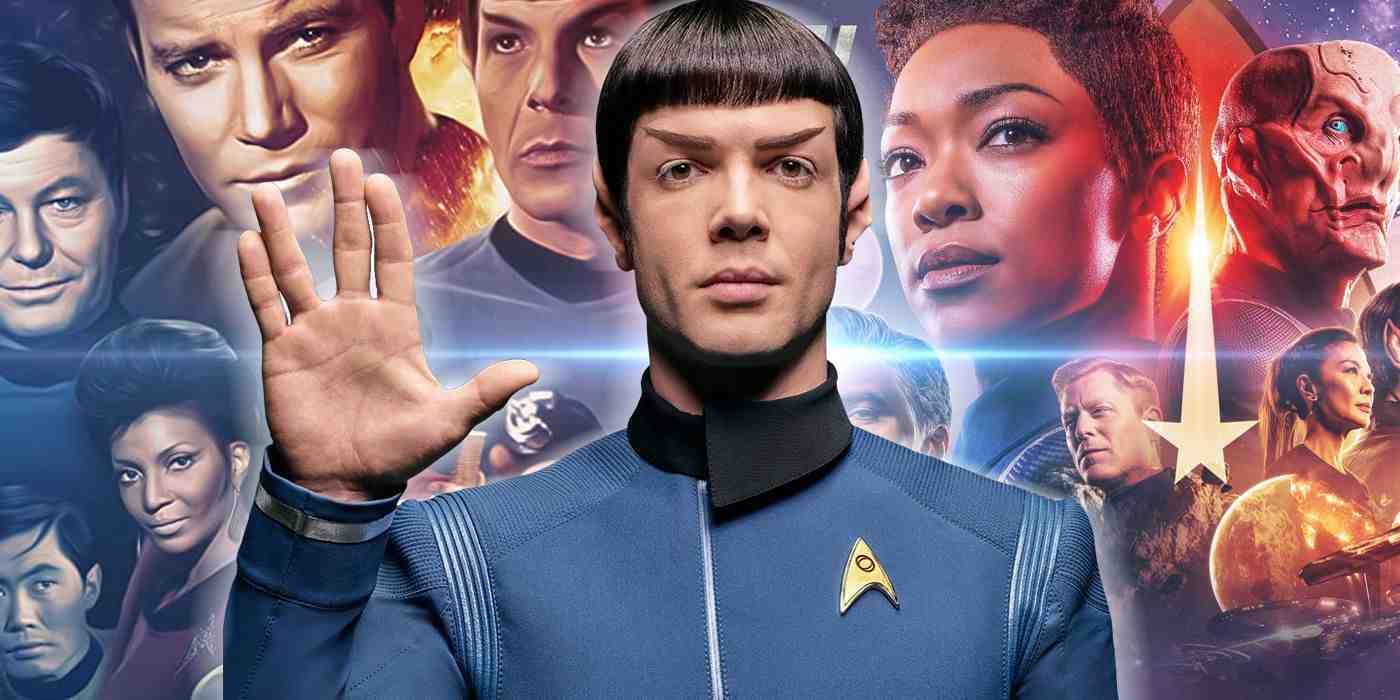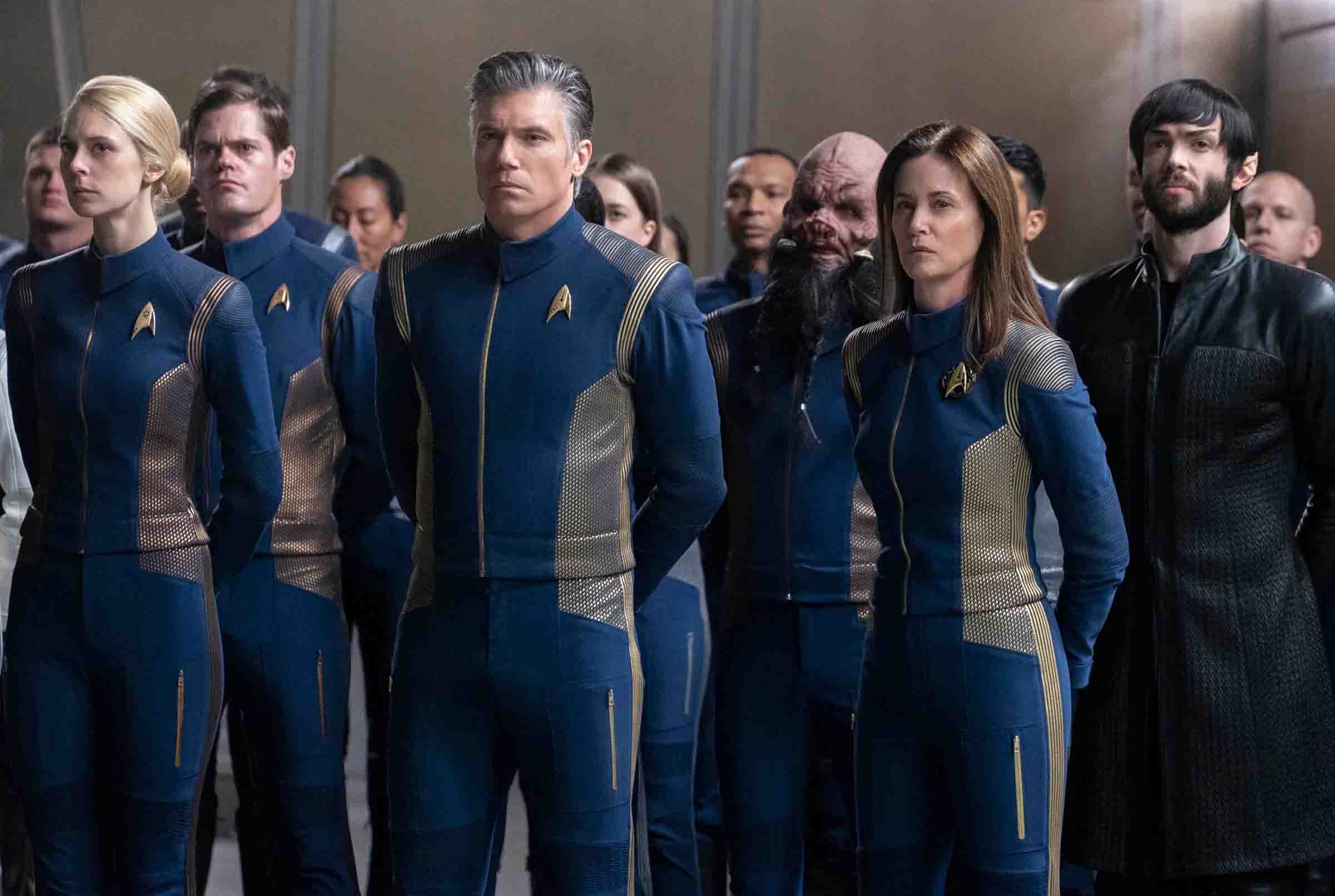
Is ‘Star Trek: Discovery’ the most popular spinoff of all time?
In an era drenched with spinoffs, reboots, and reimaginations, Star Trek: Discovery beams us up to a unique cosmos of prestige television. Blending vintage sci-fi charm with modern narrative complexity, the show has carved a stellar niche. Even the most ardent of Trekkies can’t help but spill the tea: the rapturous chorus of five-star reviews showing how Discovery has warped past the popularity of its galactic predecessors. Let’s dive deep into this celestial success to understand why this iteration of Star Trek has truly become the final frontier in televised entertainment.

*Discovery’s* celestial ascendancy
Shining brighter than a supernova of five-star reviews, *Star Trek: Discovery* has truly achieved a warp-speed breakthrough in viewer approval. Lauded for its intricate narrative arcs and deft blending of futuristic and retro aesthetics, the show has astutely rebooted the classic franchise for the 21st century, without losing the timeless allure of the original. This delicate balancing act of revamp and reverence has charmed even the most discerning of Trekkies, and is reflected in both critic and audience reviews.
One could argue that the genius of *Star Trek: Discovery* lies in its artful dance between homage and innovation. *The Wall Street Journal* singled out the show’s elevated sense of drama and intensely personal storytelling as key reasons for its widespread appeal. Meanwhile, *Variety’s* analysis of the franchise’s success, highlights the bold, sweeping narrative and gritty realism that roots the science fiction in tangible emotion.
Whispers circulate that it’s not just hardcore Trekkies applauding *Star Trek: Discovery*. Even casual sci-fi dabblers are finding themselves caught in its gravitational pull. It’s delightfully refreshing mix of vintage charms and modern narrative complexity does indeed seem to have broadened its fan base, not unlike a universe in perpetual expansion. In this respect, *Discovery* has truly defied the final frontier of television entertainment, breaking barriers and expectations with its vast appeal.

Navigating the franchise gauntlet
While Star Trek: Discovery manages to marry the old with the new, what sets it apart is how it marvelously handles the inherent pitfalls of being a franchise rebirth. The word spinoff can often send shivers down the spine of any avid fan, bringing back memories of beloved universes being brutalized by poor storytelling and blatant cash grabs. Yet, against all odds, Discovery triumphs where many have stumbled, balancing nostalgia and innovation with the grace of an Intrepid-class starship navigating a minefield.
One of the driving forces of Discovery’s success could be its approach to representation and diversity. Notable studies reveal a trend towards diversity in casting leading to higher audience ratings. The New York Times, in its review, praised the show for its “commitment to a diverse cast”. This seems to have struck a chord with fans, both old and new, serving as proof of the franchise’s growth and adaptation to the changing social landscape.
Star Trek: Discovery doesn’t just score in delivering engaging content – it holds the power to immerse the viewer in the socio-political landscape of the universe, giving a depth that is seldom found in contemporary science fiction dramas. Discovery serves up a potent cocktail of thrilling narratives, complex characters, and societal commentary, establishing it not just as a successful spinoff, but potentially the most popular Star Trek iteration of all time. The reviews have it: “Star Trek: Discovery” is star trekking like none other before.

Becoming the fan favorite
Star Trek: Discovery appears to be successfully navigating the fine line between championing continuity and embracing reinvention, as seen through its impressive accumulation of positive reviews. The show portrays an unprecedentedly realistic and engaging version of the future. The deployment of a charming blend of retro and futuristic themes sprinkled with a telenovela’s worth of intense personal drama adds a satisfying complexity to the science fiction genre.
The *Entertainment Weekly* review, for example, hailed Star Trek: Discovery as an “ambitious reinvention” that manages to strike the perfect balance between reverence for the original and creative innovation. The *Guardian*, on the other hand, echoed this sentiment, appreciating the way Discovery managed to spin off from the Star Trek universe while adding its own unique modern twist, resulting in a “smart, dark and politically aware” rendition of the beloved universe.
In an age where revivals often feel like unnecessary attempts to rehash golden oldies, the vast majority of studies, analyses, reviews, and social media discourse confirm Star Trek: Discovery as a standout exception. The no-nonsense approach it takes towards diversity, coupled with a dash of brazen charm and a hearty dose of character-driven storytelling, seems to have deeply resonated with the audience – both old and new. Comfortably cloaked in its mother show’s interstellar legacy, Discovery’s reviews are pouring in, and they’re stellar. It’s safe to say, Star Trek: Discovery is a force to be reckoned with. Indeed, the love is real, and it boldly goes where no iteration has gone before.

Discovery lands a perfect score
Stellar five-star reviews, heartfelt audience approval, a successful reboot of a beloved franchise, and an unprecedented appeal to a diverse fanbase – all of these attest to “Star Trek: Discovery” being one of the most powerful forces in the modern television cosmos. Bending the arc of television tropes in a way that pays homage while also setting a new course, “Discovery” has definitely made it so. Longtime fans and fresh faces alike share the consensus: If you seek Star Trek’s final frontier of popularity among spinoffs, “Discovery” is it. The “Star Trek: Discovery” love affair has clearly warped to a new degree, and it just might keep going boldly where no series has gone before.







